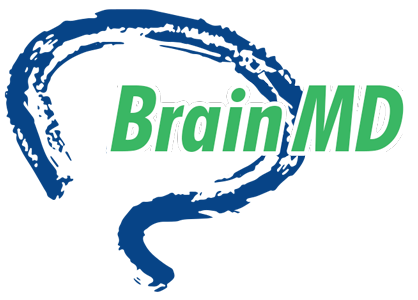
When we think of brain disorders like Alzheimer’s, Parkinson’s, depression, or multiple sclerosis, we often focus on genetics, trauma, or aging. But a growing body of research is uncovering a silent culprit behind many of these conditions: neuroinflammation.
What Is Neuroinflammation?
Neuroinflammation is the brain’s immune response to injury, infection, or harmful stimuli. While some inflammation is necessary for healing, chronic or uncontrolled neuroinflammation can damage brain cells and impair communication between neurons. This can lead to or worsen neurological and psychiatric disorders over time.
How Neuroinflammation Affects the Brain
Prolonged inflammation in the brain disrupts normal neural function in several ways:
- Destroys brain tissue through overactive immune cells like microglia
- Interferes with neurotransmitter balance, affecting mood and cognition
- Interferes with neurotransmitter balance, affecting mood and cognition
- Disrupts the blood-brain barrier, allowing toxins and pathogens to enter
- Impairs memory and learning by damaging the hippocampus
Conditions Linked to Neuroinflammation
Researchers now believe neuroinflammation plays a central role in the development or progression of many brain-related conditions, including:
- Alzheimer’s disease
- Parkinson’s disease
- Multiple sclerosis (MS)
- Stroke
- Epilepsy
- Chronic depression and anxiety
- Autism spectrum disorders
Even mild, long-term inflammation can alter brain chemistry and function, leading to symptoms that are often misattributed to stress, aging, or other issues.
Common Triggers of Neuroinflammation
Neuroinflammation doesn’t happen without a cause. Some common triggers include:
- Chronic stress and sleep deprivation
- Poor diet and high sugar intake
- Viral or bacterial infections
- Environmental toxins and pollutants
- Autoimmune conditions
- Traumatic brain injuries (TBI)
Signs You Might Be Experiencing Neuroinflammation
Because it develops silently, many people don’t realize their brain inflammation is affecting them. Symptoms can include:
- Brain fog or memory issues
- Mood swings, irritability, or depression
- Chronic fatigue
- Difficulty focusing or concentrating
- Headaches or migraines
- Sleep disturbances
If these symptoms are persistent and unexplained, it may be worth exploring whether neuroinflammation could be involved.
How to Reduce Brain Inflammation
The good news is lifestyle changes and medical support can help reduce neuroinflammation and protect your brain:
- Adopt an anti-inflammatory diet rich in leafy greens, berries, omega-3s, and turmeric
- Get regular exercise to boost brain-derived neurotrophic factor (BDNF)
- Improve sleep quality and maintain a consistent sleep schedule
- Practice stress-reducing techniques like meditation or yoga
- Avoid exposure to toxins, processed foods, and excessive alcohol
- Consider medical therapies like IV infusions, neuro-nutrition, or brain-targeted supplements under professional care
The BrainMD Approach to Brain Health
At BrainMD, we recognize the powerful role neuroinflammation plays in many brain and neurological conditions. That’s why we take an integrative approach combining neurology, personalized medicine, and lifestyle support to address the root causes and support long-term brain health.
If you’re experiencing ongoing cognitive, emotional, or neurological symptoms, neuroinflammation could be the missing piece of the puzzle. Our experts are here to help you uncover the cause and create a tailored treatment plan to help you heal.
Schedule a consultation with BrainMD today to start your journey toward better brain health and clarity.
